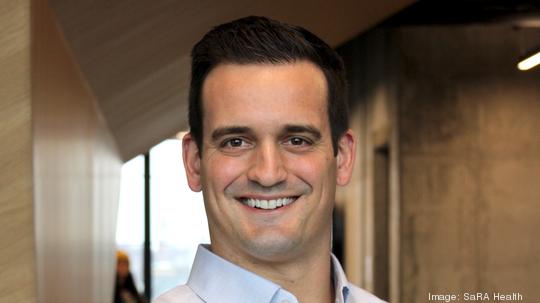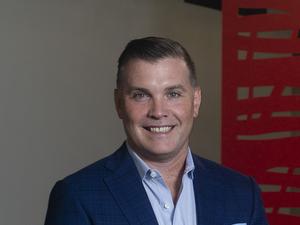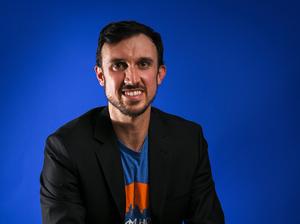
Business was humming along for SaRA Health in 2020 until the Covid-19 pandemic slashed its revenue.
“Our core business disappeared overnight,” CEO and co-founder Steven Coen said.
The Kansas City tech startup’s injury prevention platform for high-risk people relied on in-person visits with physical therapists, who scanned a patient’s movement patterns. SaRA Health’s algorithm used that data to identify potential issues down the road and make tailored exercise recommendations for preventing injuries. But then the pandemic thwarted in-person visits, and the startup faced an uphill battle in attracting new customers.
It got to the point earlier this year that Coen met with his mentor to have a tough conversation: Should he walk away from SaRA Health? Was it still worth it?
“My mentor and I talked about: could I be doing higher ROI things with my time and effort, and blood, sweat and tears instead of SaRA? And part of that answer was very potentially, ‘Yes, you should be doing other things.’ … As CEOs, we tend to think about ourselves last, and you need mentors (with an outside perspective). … If you think about it, there is no upside for an existing investor to tell you to shut your business down.”
But Coen’s mentor knew something he didn’t: In January, Medicare released a new set of reimbursement codes for remote therapeutic monitoring, and the mentor said they could be a new opportunity for SaRA. He was right.
“It’s potentially life changing. That’s not hyperbole,” Coen said. “Our business prospects look so much better. … We have gotten more inbound interest in one month than we did two years prior (combined).”
The codes allowed SaRA Health to switch from injury prevention to helping movement health professionals, such as physical and occupational therapists, podiatrists and orthopedic surgeons, to engage with their patients outside the clinic setting during the recovery period. The new focus is an easier sell with a more tangible return on investment for prospective customers.
“If you think about it, what’s easier to get someone to change their behavior on? Something that hasn’t happened yet or while they’re getting care for an injury that hurts that day?” Coen said. “We had to go hunt for business with our prior model and explain how things could be different and then close people that way, which is tougher.”
Through SaRA Health’s platform, clinicians can remotely monitor their patients, staying abreast of setbacks and progress. Having real-time feedback also helps them uncover whether a patient’s exercise program needs to be tweaked. Through SaRA Health, patients are asked a series of questions on a regular basis to offer holistic data to clinicians, such as whether the pain level is increasing, decreasing or staying the same, or if they think they’re reaching their personal goals. Clinicians also can load exercises into the web-based app.
For clinics to receive Medicare reimbursements, patients must engage with the technology for 16 days during a 30-day period. SaRA Health only charges for successful engagements. Of its customer base, the lowest performing one has a 50% engagement rate, and the highest is 85%.
Competitors sit at 10% to 20%, Coen said, and one large health system said a competitor platform it uses only nets an 8% engagement rate. That health system now has voiced interest in SaRA Health.
In June, Overland Park-based Bardavon Health Innovations Inc. acquired a similar company, PeerWell Inc., to help it improve in-person and online support for patients with musculoskeletal problems. PeerWell offers telehealth visits and daily programs delivered by phone or tablet that help patients through therapy exercises, nutrition and information on dealing with pain and inflammation. In a release, Bardavon CEO Matt Condon called the addition of PeerWell the “next evolutionary step” for his company.
SaRA Health tested its new model in June with a physical therapy clinic in New Mexico and has since added other paying customers.
“We’ve been running ever since,” he said.







